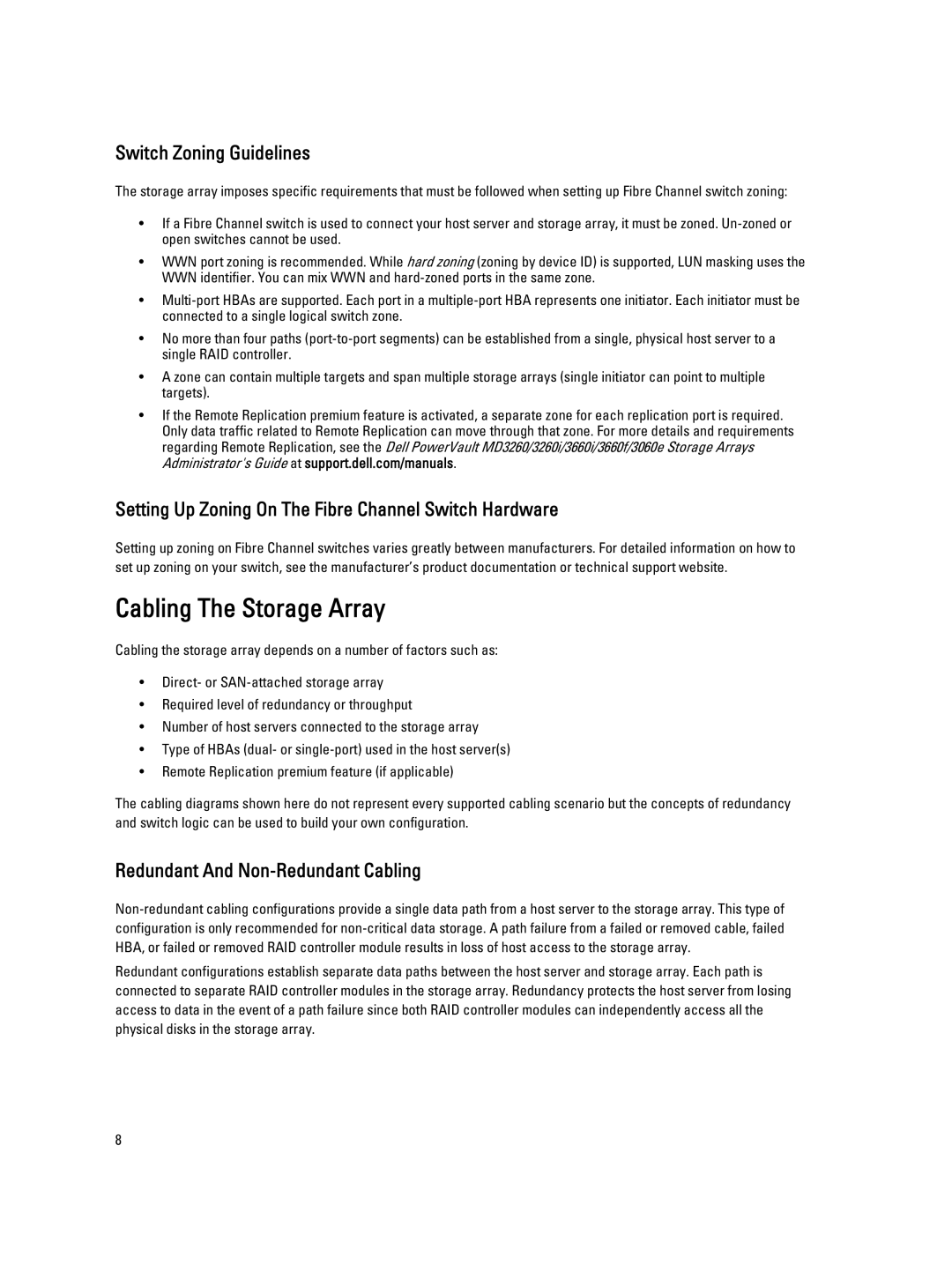Switch Zoning Guidelines
The storage array imposes specific requirements that must be followed when setting up Fibre Channel switch zoning:
•If a Fibre Channel switch is used to connect your host server and storage array, it must be zoned.
•WWN port zoning is recommended. While hard zoning (zoning by device ID) is supported, LUN masking uses the WWN identifier. You can mix WWN and
•
•No more than four paths
•A zone can contain multiple targets and span multiple storage arrays (single initiator can point to multiple targets).
•If the Remote Replication premium feature is activated, a separate zone for each replication port is required. Only data traffic related to Remote Replication can move through that zone. For more details and requirements regarding Remote Replication, see the Dell PowerVault MD3260/3260i/3660i/3660f/3060e Storage Arrays Administrator's Guide at support.dell.com/manuals.
Setting Up Zoning On The Fibre Channel Switch Hardware
Setting up zoning on Fibre Channel switches varies greatly between manufacturers. For detailed information on how to set up zoning on your switch, see the manufacturer’s product documentation or technical support website.
Cabling The Storage Array
Cabling the storage array depends on a number of factors such as:
•Direct- or
•Required level of redundancy or throughput
•Number of host servers connected to the storage array
•Type of HBAs (dual- or
•Remote Replication premium feature (if applicable)
The cabling diagrams shown here do not represent every supported cabling scenario but the concepts of redundancy and switch logic can be used to build your own configuration.
Redundant And Non-Redundant Cabling
Redundant configurations establish separate data paths between the host server and storage array. Each path is connected to separate RAID controller modules in the storage array. Redundancy protects the host server from losing access to data in the event of a path failure since both RAID controller modules can independently access all the physical disks in the storage array.
8
